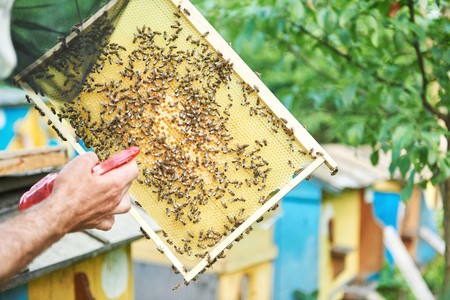Introduction: The Importance of Reliable Pest Control
If you are passionate about gardening in the UK, keeping your outdoor space healthy and beautiful is likely at the top of your priorities. One key aspect that often gets overlooked is the importance of choosing a reputable pest control service. Reliable pest management is not just about getting rid of unwanted insects or rodents; it’s about protecting your plants, local wildlife, and even your family’s health. In the unpredictable British climate, pests can thrive in both rural and urban gardens, leading to damaged plants, poor yields, and even structural issues in sheds or greenhouses. On the other hand, relying on unqualified or irresponsible pest control companies can result in harmful chemicals leaching into the soil, harm to beneficial insects like bees and ladybirds, or repeated infestations that cost you more time and money in the long run. Understanding why a trustworthy pest control service matters is essential for every UK gardener who wants their garden to flourish safely and sustainably.
2. Understanding Regulations and Certifications
When choosing a pest control service in the UK, it’s essential to understand the regulations and certifications that ensure you are hiring a reputable professional. The UK has strict standards for pest management, designed to protect both your garden and the wider environment. Two key accreditations to look out for are BASIS PROMPT and membership with the British Pest Control Association (BPCA).
BASIS PROMPT
BASIS PROMPT is an independent industry register for pest controllers, ensuring ongoing professional development. Members must regularly update their training and skills, which means they stay informed about the latest safe and effective methods. This accreditation gives peace of mind that your chosen service is committed to high standards and legal compliance.
British Pest Control Association (BPCA)
The BPCA is the leading trade body for pest control in the UK. BPCA members must meet rigorous criteria regarding training, safety, and professionalism. Choosing a BPCA-accredited company means you can expect ethical practices, proper insurance, and adherence to UK legislation.
Key Differences at a Glance
| Accreditation | What It Means |
|---|---|
| BASIS PROMPT | Professional development; up-to-date training; legal compliance |
| BPCA Member | Strict entry standards; ethical practice; full insurance; follows UK law |
Why These Matter for Gardeners
By checking for these accreditations, gardeners can be sure their pest control provider uses safe methods suitable for outdoor spaces, complies with local regulations, and operates responsibly. Always ask providers about their certifications before booking any service—doing so helps protect your plants, wildlife, and peace of mind.

3. Local Experience and Knowledge
When choosing a pest control service in the UK, local experience truly matters. Pests common to British gardens—like slugs, aphids, vine weevils, and foxes—often require tailored solutions that account for our unique climate and seasonal changes. A reputable company with years of hands-on experience in your area will know exactly how to deal with these challenges.
Look for providers who understand the quirks of UK weather patterns and how they affect pest activity. For example, wetter winters might increase slug populations, while milder summers can mean more persistent insects. An established local firm will be familiar with these trends and use methods proven to work in your specific region.
It’s also important to ask if their staff are trained in identifying native species versus invasive ones, as treatment plans may differ. Companies with a strong local track record often have deep relationships with other gardeners and allotment holders, so don’t hesitate to ask neighbours for their recommendations or look for services that come highly rated by the community.
Choosing a pest control provider with genuine local knowledge ensures not only effective results but also reduces unnecessary harm to beneficial wildlife. This approach helps you keep your garden healthy and thriving year-round, using methods that respect both the environment and the distinct character of British gardens.
4. Methods, Ethics, and Eco-Friendly Practices
When selecting a pest control service in the UK, it’s important to consider how they approach pest management. The best companies use methods that are both effective and ethical, ensuring the health of your garden and local wildlife. Here’s what to look for:
Humane Pest Control Methods
Reputable providers should prioritise non-lethal approaches where possible, especially for mammals and birds protected under UK law. Ask if they use live traps or deterrents before resorting to more drastic measures.
Environmentally Responsible Practices
Look for pest control services committed to minimising environmental impact. This means avoiding broad-spectrum pesticides and choosing targeted treatments instead. Many companies now offer integrated pest management (IPM), which combines careful monitoring, physical barriers, and biological controls.
| Method | Description | Eco Impact |
|---|---|---|
| Live Trapping | Catches pests without harming them; suitable for release elsewhere (where legal) | Low |
| Biological Controls | Uses natural predators or parasites to reduce pest numbers | Very Low |
| Pesticide Spot Treatments | Applies chemicals only where necessary, not blanket spraying | Moderate |
Safe Use of Pesticides
If pesticide application is necessary, ensure the company uses products approved by the Health and Safety Executive (HSE) and follows all UK regulations. They should explain how they minimise risks to pets, children, bees, and other beneficial insects.
Questions to Ask Your Provider:
- Do you use any non-chemical methods?
- Are your staff trained in safe pesticide application?
- How do you protect pollinators and local wildlife?
Selecting a pest control service with strong ethics and eco-friendly practices protects your garden’s health and supports Britain’s unique biodiversity. Always ask about their approach before booking any work.
5. Transparency, Insurance, and Guarantees
When choosing a pest control service in the UK, it’s vital to ensure that the company is open about its processes and pricing. Here are key questions every gardener should ask before signing up:
Are Quotes Clear and Detailed?
Ask for a written quote that breaks down all costs—no hidden charges or surprise extras. Reputable companies will gladly explain what is included in their fee, from the initial inspection to the treatment itself.
Is There Adequate Insurance Cover?
Check that the pest control provider has valid public liability insurance. This protects your property in case of accidental damage or mishaps during treatment. Do not hesitate to request proof of insurance—trustworthy firms expect this.
What Aftercare and Follow-Up is Provided?
A professional company will offer advice and support after the initial visit. Ask if they provide follow-up checks or aftercare services to ensure pests do not return. Some may include this in their package, while others charge extra.
Are Satisfaction Guarantees Available?
Many reputable UK pest control services offer guarantees on their work. Ask what happens if the problem persists—will they return free of charge? A guarantee shows confidence in their methods and gives you peace of mind.
Summary Checklist
– Is the quote itemised and transparent?
– Are they fully insured?
– What does aftercare involve?
– Is there a satisfaction guarantee?
By asking these questions, you’ll find a pest control service that values transparency and stands by its work—helping you protect your garden with confidence.
6. Reviews, Recommendations, and Community Reputation
Finding a reputable pest control service often starts with gathering trustworthy feedback from those around you. Start by having a chat with your fellow gardeners and neighbours—local word of mouth is invaluable in the UK. People are usually happy to share their experiences, whether positive or negative, and this can help you build a shortlist of reliable providers.
How to Collect Reliable Local Feedback
Ask at local allotments, gardening clubs, or community groups for recommendations. Many UK communities have active social media pages or WhatsApp groups where members openly discuss home and garden services. These groups can be an excellent source for honest, up-to-date reviews on pest control companies operating nearby.
Checking Online Platforms
Online platforms such as Trustpilot, Checkatrade, and Google Reviews are widely used across the UK. Look for pest control companies with consistently high ratings and detailed customer feedback. Focus on reviews from people in your area, as pest problems and solutions can vary greatly depending on local wildlife and weather conditions.
What to Look For in Reviews
Pay attention to comments about professionalism, punctuality, effectiveness, and aftercare service. A reputable company should receive praise for clear communication, transparent pricing, and respect for gardens and property. Be wary if you see repeated complaints about missed appointments or poor results.
The Value of Community Reputation
A business that is well-regarded locally is more likely to deliver good service because their reputation is built on trust within the community. If a provider comes highly recommended by several local sources—and their online presence backs this up—they are likely a safe choice for your gardening needs.
By combining personal recommendations with careful online research, you can confidently select a pest control service that is both effective and trusted by your community.


